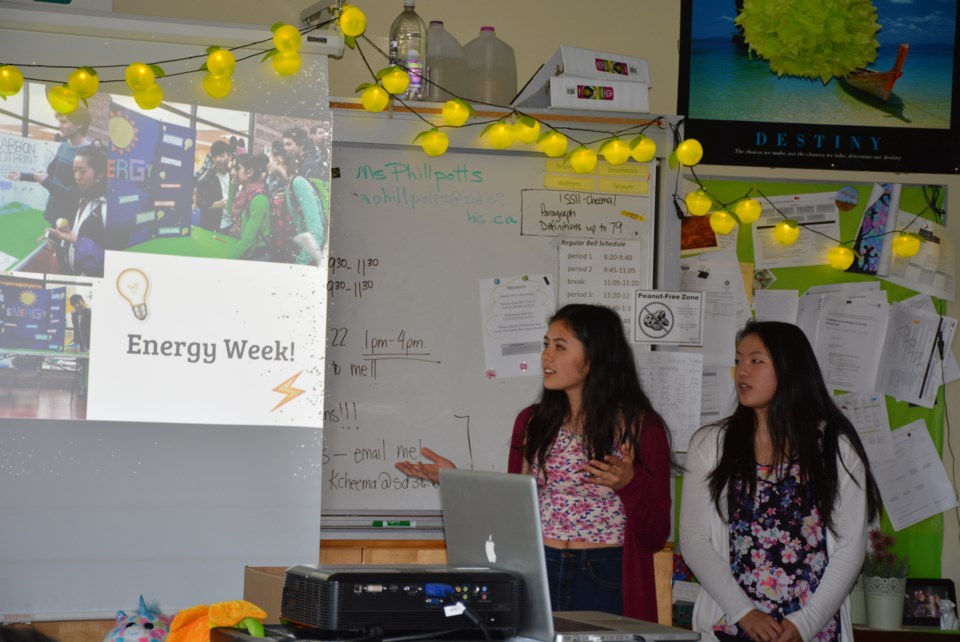When the Natural Club at McMath heard about the Richmond School District’s Energy Cup Competition last year, the group of 30 students was determined to win. After all, their club was all about sustainability and making a difference to the planet. They got to work putting up announcements reminding students and staff to power out, encouraging those who noticed power wastage in the school to report it, and creating a program for an Earth Week at the school. That program included Walk to School Wednesday, Meatless Monday and other initiatives, putting McMath in first place for the school district’s Energy Cup.
“Students are competitive and they wanted to let the district and other schools know about the excellent activities and sustainability leadership happening at our school,” said Andrea Phillpotts, a teacher at the school who oversaw the club’s activities.
“The contest asked us to post evidence on a daily basis and showed who was winning the challenge through a website with race car graphics. The gorgeous homemade trophy we won is an inspiration to keep on being sustainable throughout the year.”
The Richmond School District’s Energy Engagement Program is four years old and includes projects like Lights Out Lunches and Burr Day, held annually in February, when students are encouraged to bundle up and think about energy conservation in their schools.
The friendly Energy Cup competitions help engage students in these and other activities, and this year Hamilton elementary was the recipient of the elementary schools’ Energy Showdown. Prizes like water bottle filling stations, field trips to Science World and DreamRider Theatre tickets have helped motivate students to participate and the Energy Engagement Program has produced some significant results.
Energy Shutdowns, where the schools are encouraged to unplug and shut down lights and other electronic devices over winter and spring breaks, save the district $26,000 over winter break and $20,000 over spring break. Thirty-three Richmond schools participated in the seven energy engagement campaigns held in the 2015-2016 school year and the district paid out $22,800 in eco-wise grants to various schools. Feedback from the students indicated that Dining in the Dark was the most popular of the energy saving campaigns and identified waste/recycling and active transportation as goals for future campaigns. And over a two-week period, the Energy Cup challenge alone resulted in a four percent energy savings.
At McMath, one of the long-term changes generated by the Energy Cup was putting in a work order to have the gym lights repaired.
“The lights were designed to shut off if a motion detector sensed the gym was unoccupied,” said Phillpotts. “A PE teacher noticed this energy saving detector was broken and that energy was being wasted. The repair saves energy to this day!”



